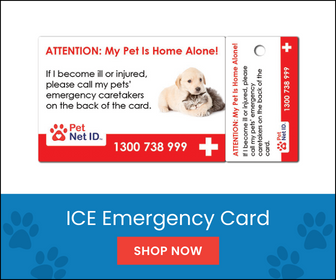
Infrequent Defecation in Dogs – Related Illnesses
If your dog is experiencing infrequent defecation, there are several potential sickness that can bring on infrequent defecation in dogs.
Infrequent Defecation in dogs can bring on noticeable changes in your canine’s physical health and habits.
Understanding the infrequent defecation in dogs is the very first step in defending your dog’s health.
We have listed some of the common ailments in dogs when they are experiencing infrequent defecation. Please click on the links of ailments below for more information.
| Dog Illnesses & Health Conditions |
|---|
| Constipation in Dogs |

Knowing Signs And Symptoms Including Infrequent Defecation in Dogs
Keep an eye on your dog’s day-to-day activity – Maintain a notebook of whenever your dog relieves himeself or herself, when the symptoms occur, when he/she consumes, and more.
This helps to establish a pattern to the signs and symptoms. It can likewise be a really valuable resource for the veterinarian to diagnose your dog’s health issues.
If your dog is slightly ill (not eating the best for a day, restless, vomiting one or two times, a bout of diarrhea) you can very carefully observe your canine in your home and phone your veterinarian for guidance.
Seek prompt vet attention with specific symptoms – There are several extreme symptoms that call for quick medical attention. Do not wait on these signs and symptoms and also call your vet today:
- Known intake of a harmful substance.
- Unconsciousness.
- Unrelenting vomiting and also diarrhea.
- Respiratory troubles.
- Excessive blood loss.
- Seizures that don’t cease within one minute.
- New or repeating signs and symptoms in a canine with a health condition (diabetes, Addison’s disease, and so on).
- Incapable to pee or not producing urine.
- Big swellings around the face, eyes or throat.
- Broken bones.
Get recommendations from your veterinarian on less severe symptoms – Some symptoms of illness in dogs may be unbearable for pet dog and also might suggest health conditions that need to be treated. Call your vet to get guidance on dealing with the following symptoms:
- The occasional throwing up as well as diarrhea lasting much longer than 1 day.
- Infrequent seizure that can go on for no more than one minute.
- Lethargy lasting much longer than eventually.
- High temperature.
- Swellings or bumps that suddenly show up or recent ones that grow.
- Not taking food for greater than 1 day.
- Limping or acting uncomfortable.
- Trouble excreting.
- Excessive drinking.
- Swelling that appears on gradually.
- Most other strange symptom or behaviour (shuddering or whimpering).
Pay attention to your fur baby’s attitude – A pet dog parent can learn a good deal by paying attention to the dog’s behaviour including things like how she or he is physically feeling. You’ll need to ensure his health is gradually getting better and also answering medical treatment. For instance, your pet will start to wag his tail, pay attention to you as well as get up to greet you.
If he cheers up and also begins demanding food, then it is excellent signal to indicate he or she is pulling through.
However, if you observe your pet is becoming less interactive or just lying still, he or she might be becoming worse and require medical attention.
Monitor your canine’s breathing – It is better to observe the breathing pattern of your pet dog and it can tell you inform you a lot about just how your dog feeling. If your dog is in pain or dealing with some kind sickness, he may breathe heavily or pant.
In many circumstances, coughing as well as heavy breathing are indications of a chest infection. You should also keep an eye on your dog’s gum tissues if his/her breathing triggers substantial chest movements.
The gum tissues in your pet dog’ mouth ought to be pink and also healthy and balanced. If the gums look tinged blue or pale, contact the vet. Your beloved pet could not be getting enough oxygen and could be in respiratory system distress.
You can additionally keep an hourly record of your canine’s breathing. Generally your dog take around 20 to 30 breaths per minute. If your dog’s breathing rate surges continuously, his or her health issue has deteriorated and you have to speak to the veterinarian.





